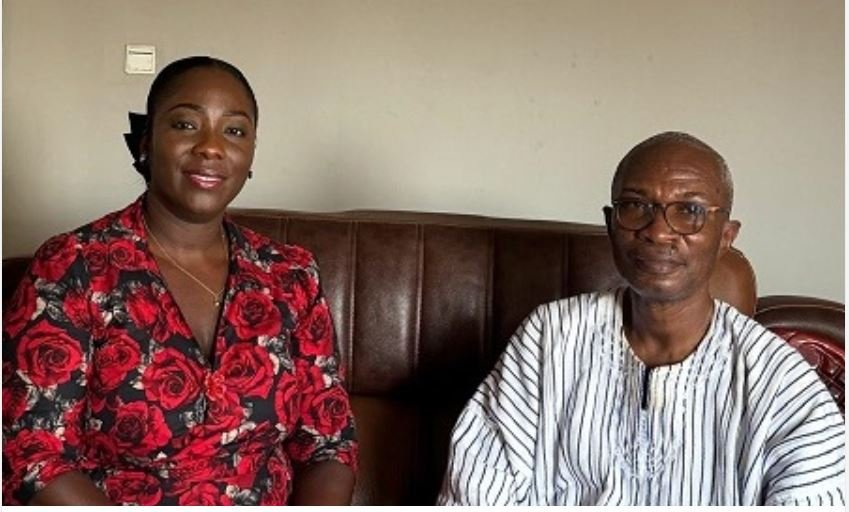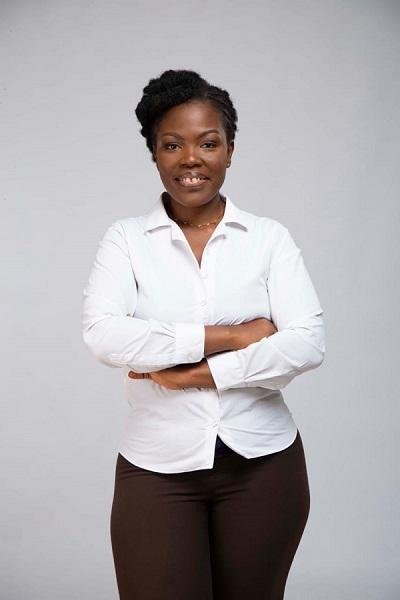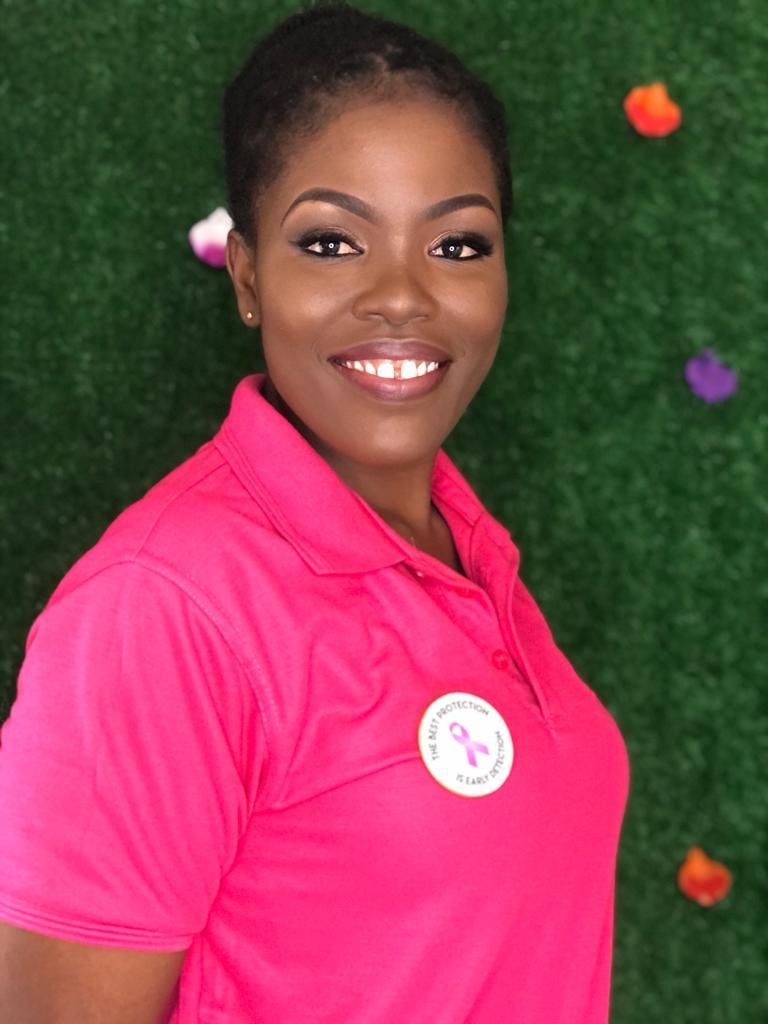Gender
Upscale screening to eliminate cervical cancer —Nurse

Ms Jennifer Nelson, a Preventive and Occupational Health Management Consultant, has called for a scale up in the screening for cervical cancer to aid in early detection.
She said screening was a critical component of cervical cancer elimination, stressing that it could accelerate the pace of a world free of cervical cancer marching towards the 2030 deadline.
Ms Nelson, who is also the CEO of the preventive health NGO, Lifeline Haven Company Limited, stated during an engagement organised by Communication for Development and Advocacy Consult (CDA Consult) as part of activities to mark the 2025 Cervical Cancer Awareness Month.
Since 2020, the World Health Organisation (WHO) has been driving a global effort to eliminate cervical cancer, underscoring the necessity of collaborative innovation and sustained commitment.
Cervical Health Awareness Month is a time to reflect on the progress made and the work that lies ahead. Amplifying the importance of prevention, championing mental health care, and fostering a supportive community can prioritise cervical cancer activities.
She explained that young people, especially women, must be encouraged to undergo the screening. “Early detection is key to winning the war against cervical cancer; people should not fear going to health facilities for screening.”
Ms Nelson noted, “Prophylactic vaccination against HPV and screening and treatment of pre-cancer lesions are effective strategies to prevent cervical cancer and are cost-effective.
“Cervical cancer can be cured if diagnosed at an early stage and treated promptly.” Mr Francis Ameyibor, CDA Consult Executive Director, said the 2025 theme for Cervical Cancer Awareness month is “Eliminating Cervical Cancer: A Shared Responsibility.”
He said the theme emphasised the need for collective action to prevent cervical cancer, which claims thousands of lives annually in Ghana.
He explained that Cervical Cancer Prevention Month served as a dedicated awareness campaign aimed at educating people about cervical cancer, its prevention, and the importance of regular screenings and it was a largely preventable disease, and this week serves as a reminder to prioritise cervical health and take steps to reduce the risk of the cancer.
Mr Ameyibor said the climax of Cervical Cancer Prevention Month is observed from January 22 to January 28, stressing that CDA Consult and partners have lined up series of events this month to commemorate the event.
He said the advocacy group has to roll out a relentless advocacy campaign to combat cervical cancer in the country and also draw global attention to the slow pace of achieving the 2030 target and the need for scaling up the process.
Mr Ameyibor said CDA Consult, in collaboration with the Eastern Regional Directorate of the National Commission for Civic Education (NCCE) and the National Insurance Commission (NIC), launched the “Eastern Region Must Rise Against Cervical Cancer” last year.
www.spectator.com.gh
Gender
Galamsey threatening spike in breast cancer cases — Breast Society warns
THE Breast Society of Ghana has sounded the alarm on a looming surge in the incidence of breast cancer in Ghana as the menace of illegal mining (galamsey) continues to ravage many communities across the country.
It indicated that an average of 5,000 women were diagnosed with the disease every year out of which 2,500 died, but the situation could deteriorate if the galamsey onslaught did not cease immediately.
Prof. Martin Morna, an Associate Professor with the School of Medical Sciences (SMS) of the University of Cape Coast (UCC) and member of the Society, warned that mercury, lead, arsenic and other chemicals introduced into water bodies and the soil were carcinogenic and could increase the susceptibility of women to breast cancer.
The Society issued the warning when it held a grand durbar on breast cancer awareness in Cape Coast, sensitising mostly second cycle students to the fatal disease and mounting a strong advocacy against stigmatisation.
The durbar highlighted the devastating dangers of the breast disease and called for love and support for victims, instead of stigma and ostracisation.
The mammoth gathering was held under the Society’s Empowerment Project as part of its 13th Oguaa Breast Cancer Campaign on the theme: “Breast cancer: Stop the stigma and be supportive.”
Prof. Morna underscored the dangers of the disease noting that cancer cells could invade other organs and parts of the body including the bone, brain and liver and cause them to fail.
He said the disease could happen to anybody but factors such as age, gender, race, family history, smoking, null parity, contraception, and delaying first birth until 30 years increased the risk of getting it.
He said early signs of the disease included bloody or blackish discharge from the breast, adding that the early signs were usually not painful or bothersome.
“Anyone who goes beyond 40 years should quickly see the doctor if they find a lump in their breast,” he said.
“It is good to do screening regularly; do it once every two years if you are at average risk, and once every year if you are at high risk,” he added.
Prof. Akwasi Anyanful, Former Vice President of the Society and Associate Professor with UCC SMS, painted a global picture of the breast cancer disease, noting that 2.3 million cases were recorded in 2022 alone out of which 665,000 succumbed.
He observed with worry that the incidence of breast cancer was higher among Caucasians, but mortality was higher among blacks.
He also observed that breast cancer could also affect men, adding that men died faster when affected.
Mrs Georgina Kumah-Dzagah, a survivor of breast cancer, shared her experience with the disease and how she suffered stigma at the hands of friends and family.
She said she had gone through all the stages of the disease including lumpectomy, mastectomy, radiotherapy, hormonal therapy, and chemotherapy even though she detected the disease at the early stage.
“The deepest wound doesn’t come from the cancer but how people respond to it. I was 31 years when I was diagnosed, and my world changed in an instance.
“I didn’t just lose my breast, I lost friends. Social gatherings became more painful because people looked at my chest instead of my face,” she recounted.
She emphasised that breast cancer was real but not contagious, urging people to be more supportive to patients.
—GNA
Join our WhatsApp Channel now!
https://whatsapp.com/channel/0029VbBElzjInlqHhl1aTU27
Gender
Awareness: First weapon against breast cancer

October is globally observed as Breast Cancer Awareness Month -a period dedicated to raising awareness, honouring millions of lives touched by the disease, and reaffirming the worldwide commitment to equitable access to care and improved survival for all.
This annual observance, marked in countries across the globe, serves as a rallying point to increase attention and support for early diagnosis, treatment, and survivorship. The 2025 theme, “Every story is unique, every journey matters,” places a spotlight on the deeply personal experiences of breast cancer survivors and patients. It underscores the diversity of their struggles while reinforcing the urgent need for compassionate, timely, and quality care regardless of geography, income, or background.
Behind every diagnosis lies not only a medical condition but also a story-one filled with courage, resilience, and hope. These stories extend beyond individuals, shaping the experiences of their families, friends, and entire communities.
Breast cancer continues to be the most diagnosed cancer among women worldwide. According to the World Health Organisation (WHO), approximately 2.3 million women were diagnosed in 2022, and about 670,000 died from the disease.
“These are not just numbers but mothers, sisters, daughters, and friends who deserve hope and dignity,” the WHO emphasises.
Survival rates, however, differ starkly across regions. While the five-year survival rate exceeds 90 per cent in high-income countries, it drops to 66 per cent in India and 40 per cent in South Africa. The reasons are clear: unequal access to early detection, timely diagnosis, and effective treatment.
If current trends remain unchecked, both incidence and mortality are projected to rise by 40 per cent by 2050. To address this, the WHO established the Global Breast Cancer Initiative in 2021, working with partners to strengthen health systems and reduce preventable deaths worldwide.
The situation in Ghana
In Ghana, breast cancer poses a particularly pressing public health concern. It is the most common cancer among women, accounting for about 15 per cent of all malignancies.
Studies reveal a troubling trend: almost 70 per cent of women are diagnosed at advanced stages, where treatment options are limited and survival rates much lower. In 2012, nearly half of Ghanaian women diagnosed with breast cancer lost their lives to the disease.
These statistics point to late presentation, cultural stigma, and limited access to screening facilities as some of the key factors fuelling high mortality.
Experts warn that unless more women come forward for early screening and timely treatment, these figures may remain stubbornly high.
Executive Secretary of the Breast Cancer Society of Ghana (BCSG), Mrs Georgina Kumah-Dzagah, said the numbers are not just statistics, they represent lived experiences. A survivor herself, she knows first-hand the difference early detection and treatment can make.
“My journey could have ended differently if I had ignored the early signs,” she reflected. “That is why the theme ‘Catch it early, treat it right, survive it’ is not just a slogan to me. It is a lifeline that can save countless women.”
Mrs Kumah-Dzagah believes awareness is the first weapon in the fight. She stresses that women must be proactive, know their bodies, and act quickly when something feels unusual.
“A lump, nipple discharge, or changes in the skin should never be ignored or treated with fear and silence,” she explained. “Hospitals and screening centres are there to help us, not to harm us. Early detection gives the best chance for a cure.”
The Executive Secretary also raised concern about the role of misinformation and reliance on untested remedies saying, too often, delays and misplaced trust in alternative cures cost lives.
“Treating it right means trusting science and trained professionals,” she stressed. “Modern treatment -whether surgery, chemotherapy, radiotherapy, or hormone therapy -may be tough, but it saves lives. I went through these treatments myself, and though the journey was not easy, I am living proof that treatment works when given at the right time.”
Her message resonates strongly in a society where cultural beliefs sometimes discourage women from seeking hospital care, and myths about breast cancer fuel stigma.
For Mrs Kumah-Dzagah, survival is not simply about conquering the disease. It is also about reclaiming life, hope, and purpose.
“Breast cancer is not a death sentence,” she affirmed. “Survivorship comes with challenges, but it also brings strength. Today, I speak not just for myself but for every woman still in the fight.”
A call for collective action
Mrs Kumah-Dzagah believes that breaking the silence and stigma around breast health is critical. She called on women, families, and communities to support open conversations and proactive health checks.
She said “let us be bold to check, quick to act, and committed to supporting each other. If we catch it early and treat it right, we will surely survive it.”
She said, BCSG continues to lead nationwide campaigns to create awareness, encourage screening, and support patients and survivors.
Through advocacy and education, the organisation, she said reminds women that vigilance, timely treatment, and community support can turn the tide against breast cancer.
By Esinam Jemima Kuatsinu
Join our WhatsApp Channel now!
https://whatsapp.com/channel/0029VbBElzjInlqHhl1aTU27






